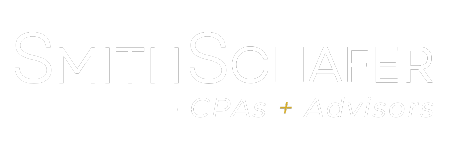Searching for an audit firm can be a time-consuming and stressful task. However, it can be maneuvered easier if you know what to look for, have realistic expectations, and ask the right questions.
HOW TO choose an AUDITOR FOR YOUR BUSINESS
Below are 5 items to ask yourself during the auditor selection process:
1. We have a CPA who prepares our taxes – can they do our audit?
Perhaps, and this is often a good place to start, but, not all CPAs are auditors, and not all CPA firms audit all industries. CPA firms are held to different standards for continuing education, independence, and oversight. Learn more about what CPA’s qualifications are here. If part of your goal is to have a single CPA firm complete both your audit and tax work, be sure this is clear from the start of your search.
2. “An audit is an audit, find the best price!” Is there a benefit to paying more?
As with most purchases, “you get what you pay for,” is true for audits. Audit standards need to be followed, but a low-cost auditor could drastically change how your organization works with an auditor. A better question to ask is, “do we want our audit to be a commodity, or do we want it to provide a service?” If expectations are for your auditor to assist throughout the year with questions, attend board meetings, or give internal monthly financial statements a quick review, you have to determine if these services are included in the quote or at what rate you will be charged. Countless CPA firms can do an audit, but if you are looking for more than a once-a-year visit, the low-cost provider may not be in your best interest.
3. Does our industry really matter?
Different industries can make a huge difference in an audit. Within the nonprofit sector, for example, organizations that receive federal funding may be subject to a yellow book or single audit and Generally Accepted Government Auditing Standards, while others receive their funds through donors or user fees and are subject to Generally Accepted Auditing Standards. Within for-profit organizations, manufacturers with inventory, equipment, and cost of goods sold have different risks, accounting needs, and audit approaches than a service-based organization. Accordingly, requesting references within your industry is an important part of your search. Inquiries of references should include questions related to the auditor’s industry knowledge and expertise.
4. Will I be able to work alongside the auditor we select?
There needs to be a comfort level between you and the audit team so you can go to them with concerns and feel confident in the guidance they are providing. Reviewing their background and qualifications is an important first step. However, this trust can start being established during the interview process. The interview is an opportunity to discuss the audit process, what will happen if problems occur, and who will actually be on-site during the audit. If answers are too technical or vague, it may be a sign you will not be able to work successfully with this particular auditor.
5. We have checked references and interviewed our prospective auditor, what additional information should we look for?
Audit firms are required to have a peer review at least once every three years, conducted by an independent CPA firm that reviews their policies and audit procedures. The peer review’s conclusions, which are provided in a letter, should be reviewed and discussed with a potential auditor.
Every situation is different, if you have questions or are interested in more information on our audit practice, please contact your Smith Schafer professional at [email protected] or submit an RFP below.




